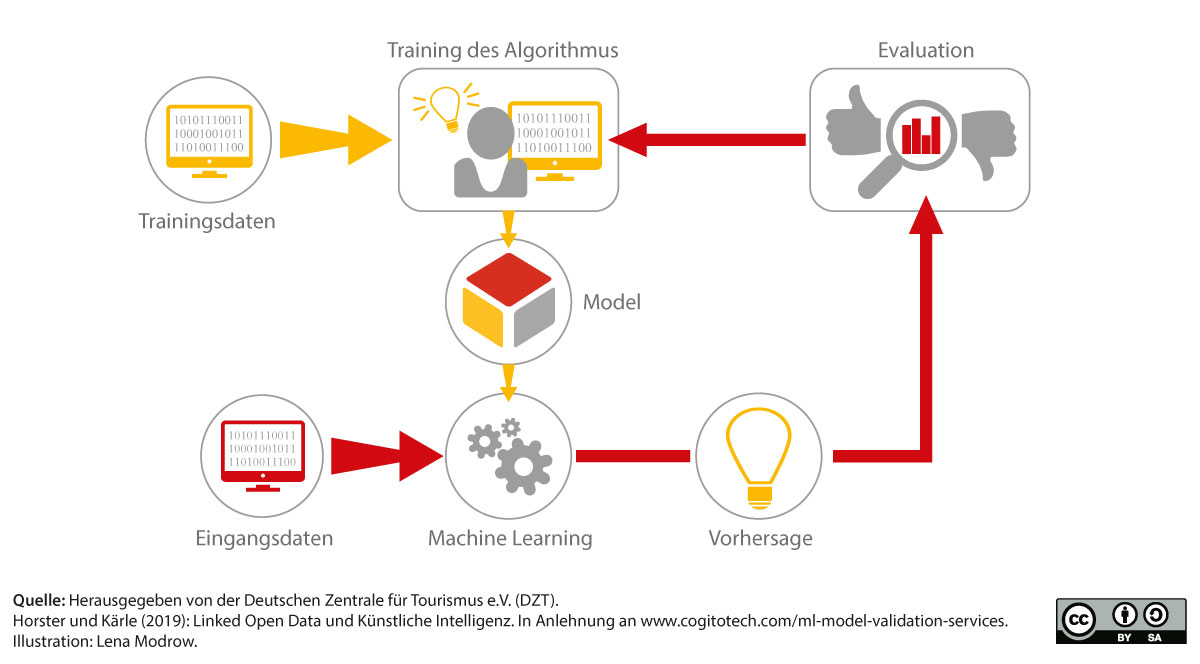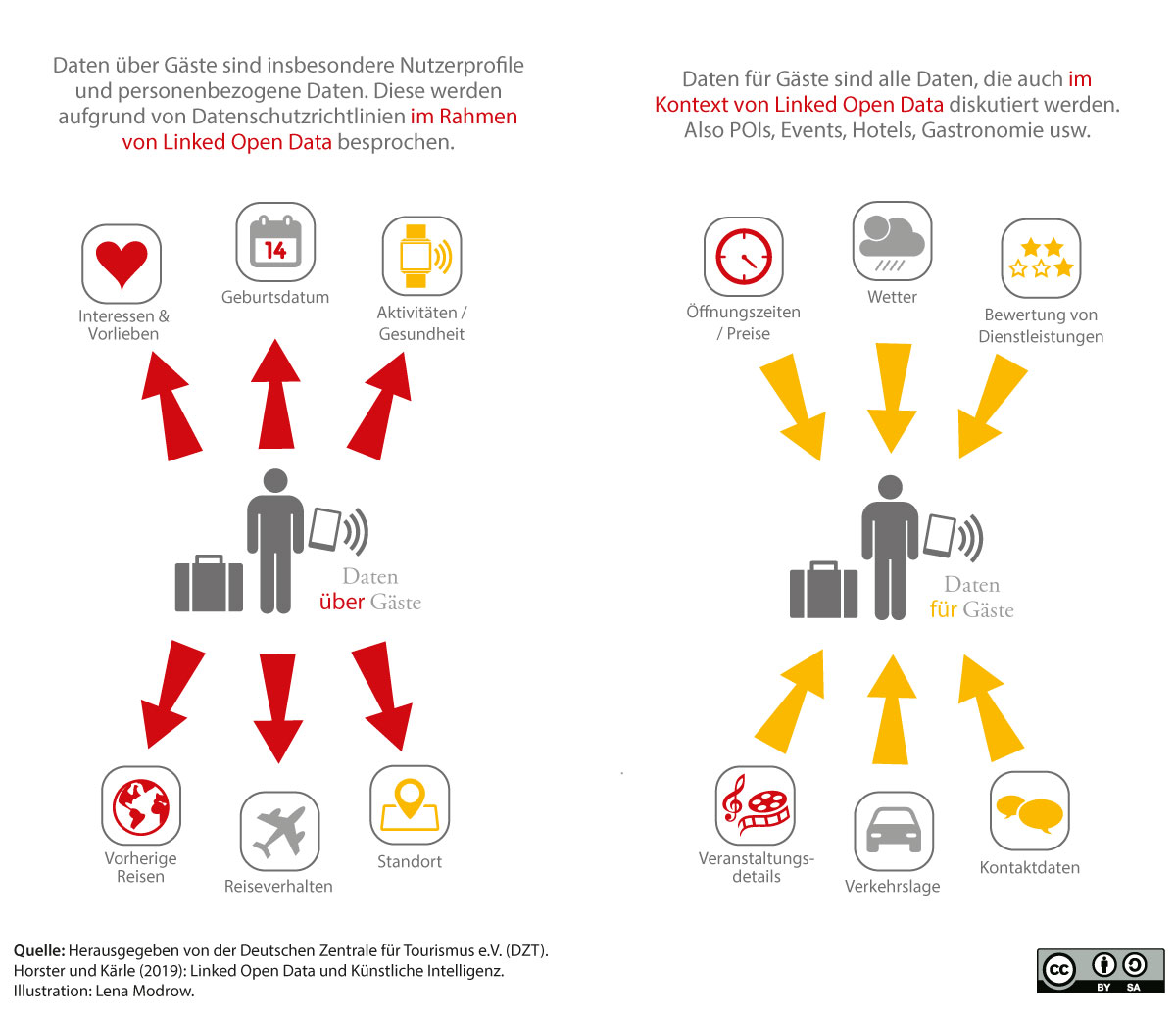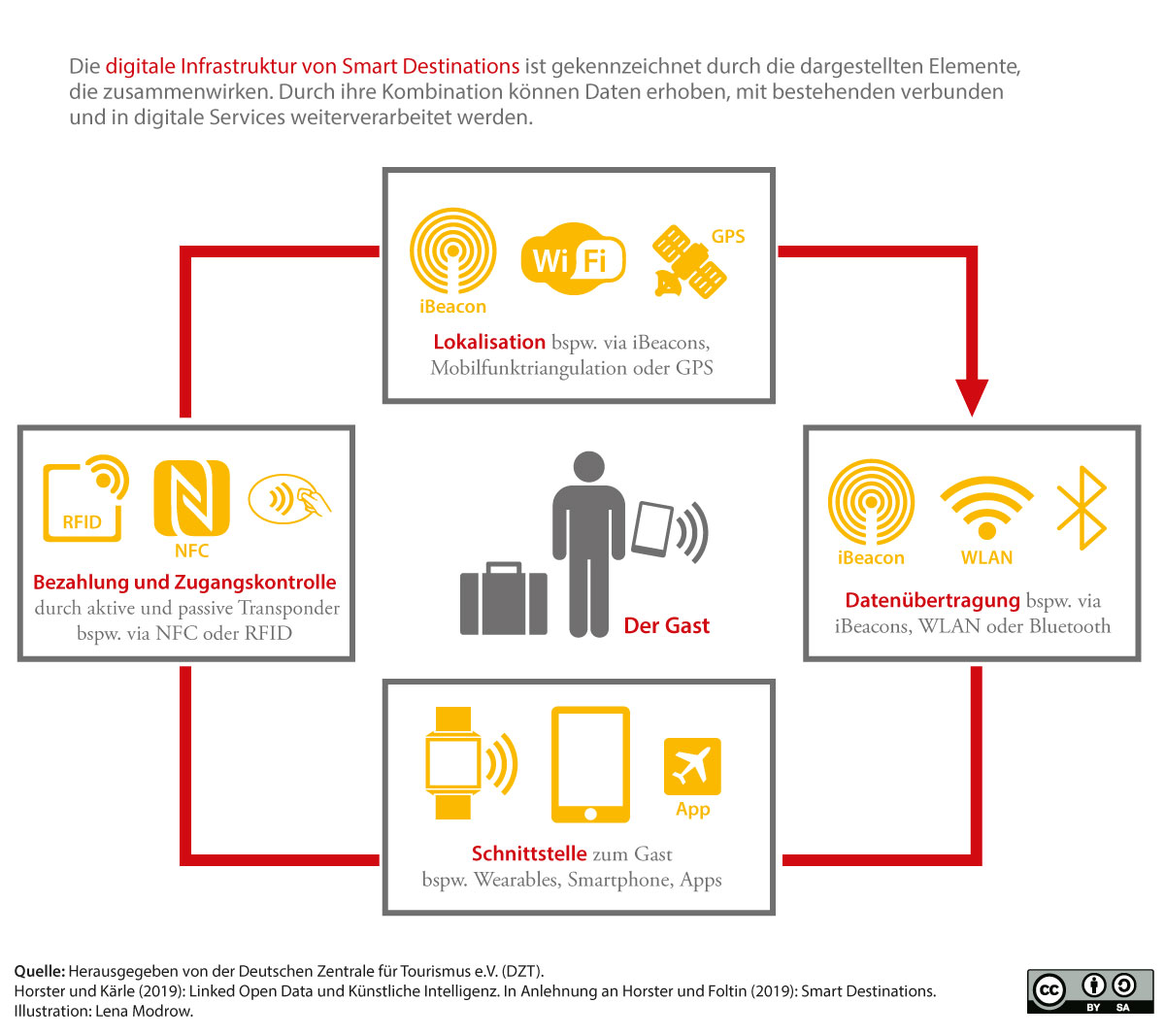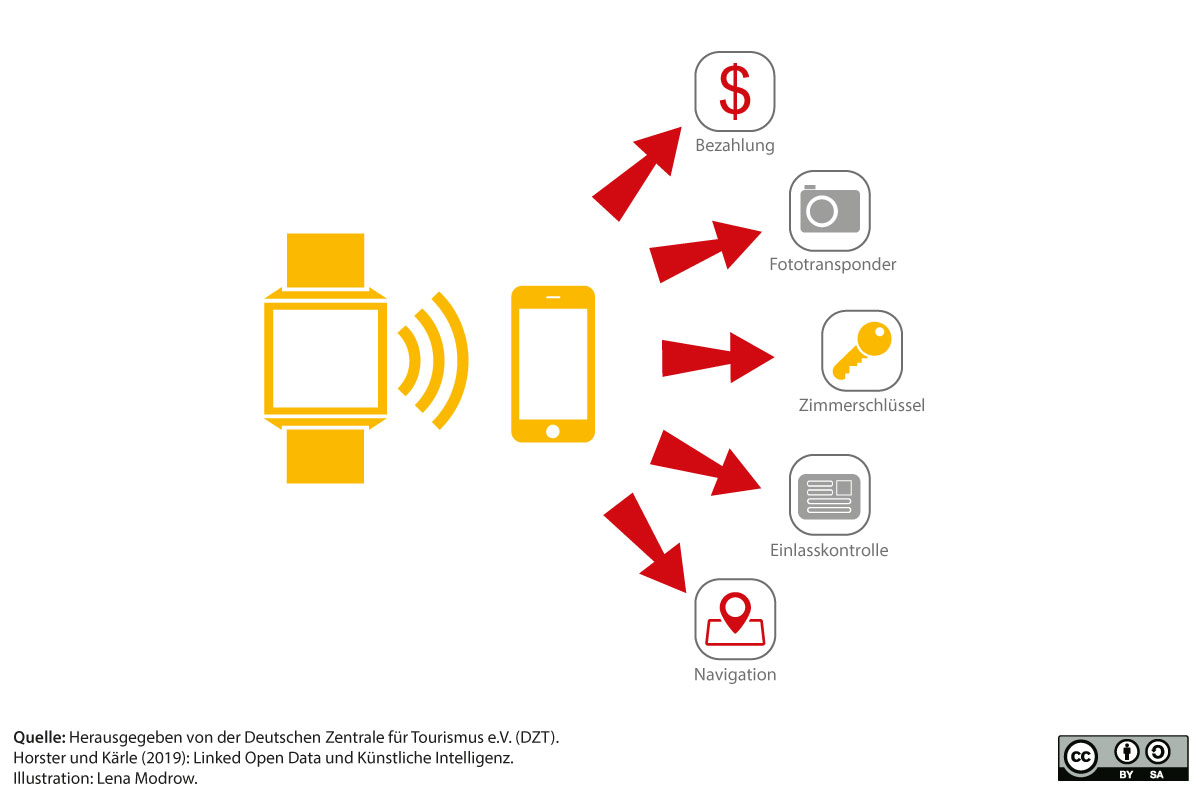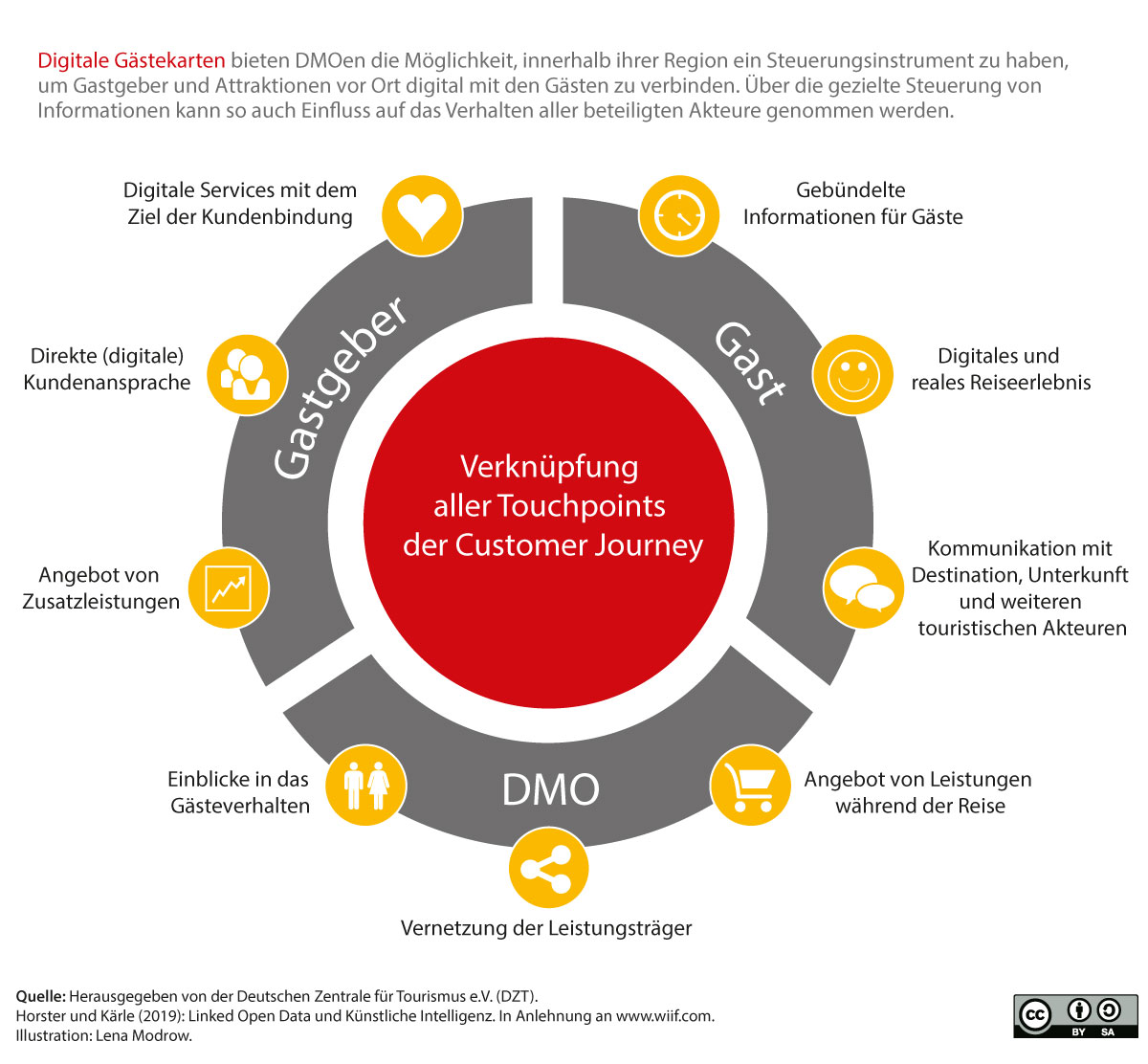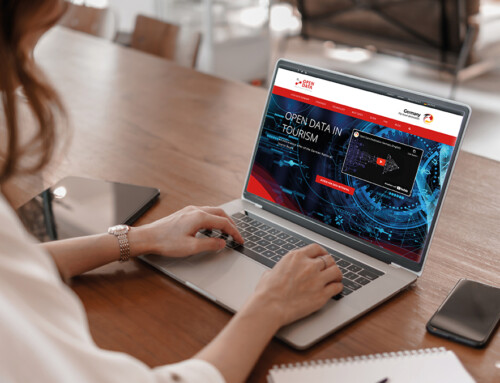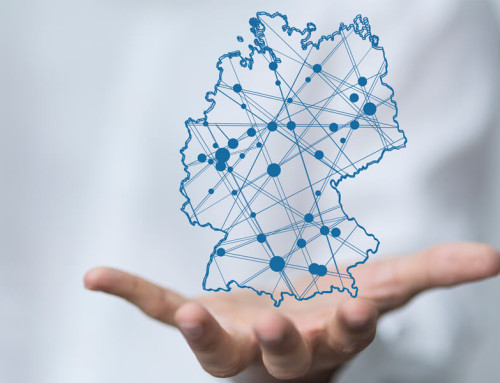The perfect match?
Artificial intelligence – what is that actually?
The topic of Linked Open Data (LOD) is often mentioned in connection with the term Artificial Intelligence (AI). AI is to be understood as a generic term used to describe different automated computational methods such as Machine Learning (ML). It is true that machine readable data in the form of Linked Open Data and Machine Learning are directly related.
Linked Open Data and Digital Assistants
As a basic application for Linked Open Data and Artificial Intelligence, we often talk about digital or smart assistants. These are systems that can answer individualised queries and provide personalised recommendations to guests. The vision is that in the near future these assistance systems will be available to travelers as advisors or coaches.
For this to work well, data from different sources must be available and correlated using AI algorithms.
The combination of data offers great potential for linking analogue and digital worlds of experience. In addition to the data, this requires in particular an interface between the guest and the destination as well as an infrastructure that enables the exchange of data (see figure).
On such a database with digital infrastructure, applications with functions such as automated access control (e.g. at festivals), cashless payment (e.g. in amusement parks), navigation aids of any kind (e.g. in ski resorts) or all conceivable information transfers (e.g. on cruise ships) can be realized in real time.
DMOs as Digital Platforms
The combination of data for guests in the form of Linked Open Data with data about guests in the form of user profiles enables DMOs to become a digital platform themselves. At destination level, digital guest cards seem to be particularly promising in this context. However, the concept of a guest card should be thought of much more broadly.
On the one hand, a digital guest card is the entity that can collect user data (with consent). On the other hand, open data on all relevant touchpoints within the destination is available and can be displayed to guests via a complementary app on the map. The physical element of the card or in the form of a wearable is the enabler to get access to real offers (see figure).
In the long run, models can be developed with the support of artificial intelligence that guide the behavior of users into a certain direction. This targeted influencing of behaviour can be very well combined with aspects of sustainability if a certain (sustainable) behaviour is rewarded. The guest receives a nudge in a certain direction.
Data Management in the Age of Artificial Intelligence
The processing of data is therefore highly relevant, especially against the background of machine learning. It is important to understand that it is primarily a matter of defining a consistent markup language and not a uniform platform for publishing the data. Because the goal of Linked Open Data is exactly that: the independence from a specific system.
By combining the data via a common standard, the database is more than the sum of its parts. So data does not have to be held centrally, but it has to be labelled consistently. This is the only way to enable independence from third-party providers (platforms) such as Google or Booking.com, as open data can be used by everyone.
In order to enable the widespread use of data, it is vital that DMOs educate their service providers and other tourism stakeholders within the region and explain the relevance of modern data management. It is up to each destination to decide which data should be made publicly available. In the end, it is the individual digital strategy and the underlying business models that are decisive.
Eric Horster
West Coast University of Applied Sciences
Eric Horster ist Professor an der Fachhochschule Westküste im Bachelor- und Masterstudiengang International Tourism Management (ITM) mit den Schwerpunktfächern Digitalisierung im Tourismus und Hospitality Management. Er ist Mitglied des Deutschen Instituts für Tourismusforschung.
Mehr zur Person unter: http://eric-horster.de/
Elias Kärle
University of Innsbruck
Elias Kärle ist Wissenschaftler an der Universität Innsbruck. In seiner Forschung beschäftigt er sich mit Knowledge Graphs, Linked Data und Ontologien. Als Vortragender referiert er meist zur Anwendung und Verbreitung semantischer Technologien im Tourismus.
Mehr zur Person unter: https://elias.kaerle.com/



